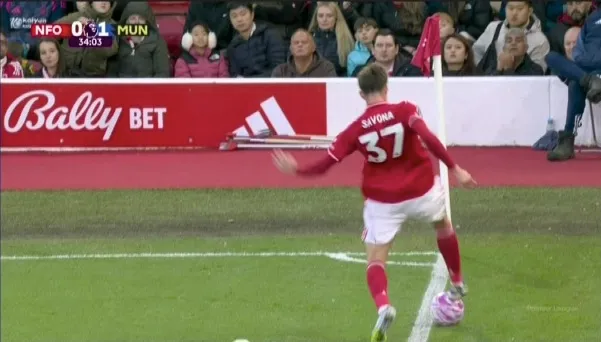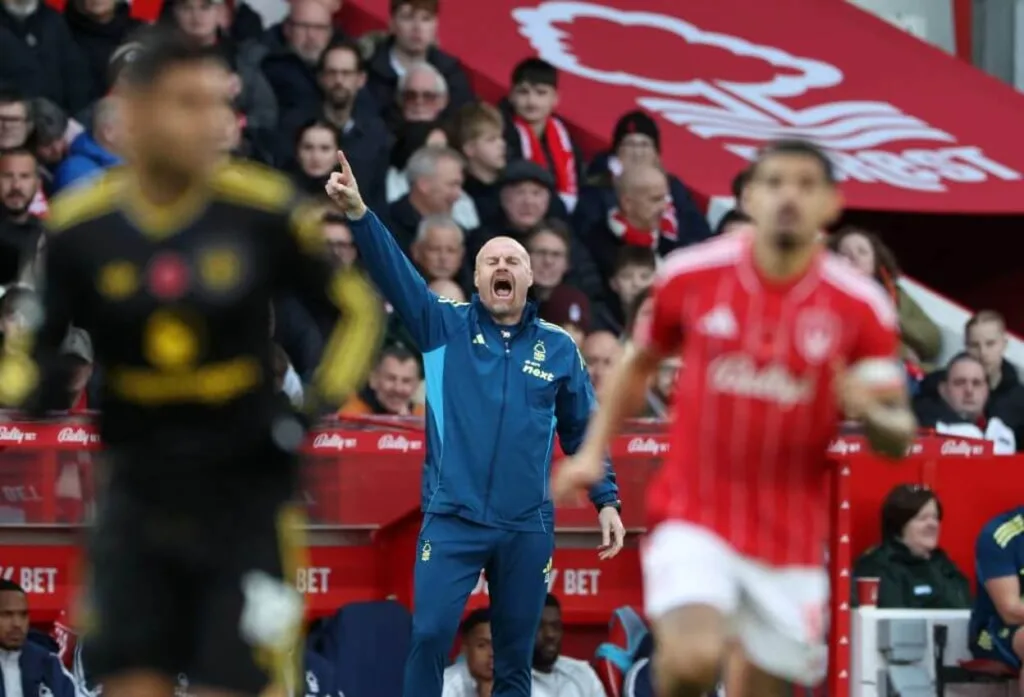Sean Dyche has issued a strong call for reform in the use of the Video Assistant Referee (VAR) system following a contentious decision that allowed Manchester United to take the lead against Nottingham Forest via a corner that appeared to have been awarded incorrectly.
In the wake of the 2-2 draw at the City Ground, Dyche addressed what he sees as a glaring inconsistency in officiating and questioned why VAR is not deployed in clear situations where it could make a decisive difference.
In Saturday’s fixture, United’s lead came when Casemiro headed in from a corner that many believed should have been ruled a goal-kick because the ball had not fully crossed the touchline.
Dyche described the decision as “not inconclusive,” saying: “I’ve seen it back. Apparently today, the assistant referee can see 78 yards away. It’s got to change. That’s two in a week. Two decisions that are not right have gone against us in a week.” He added: “If it leads directly to a goal, which it did, why is VAR not brought in? It takes eight seconds to go ‘it’s in’ or ‘it’s out’.”
Nottingham Forest, currently embroiled in a battle near the bottom of the table, feel doubly aggrieved because this was the second successive match in which they were penalised by a corner decision — last week they conceded via a set piece that should arguably have been ruled a goal-kick against AFC Bournemouth.
“We had one last week, one this week. It’s very tough on the team to take decisions like that,” Dyche said. The implication is clear: when marginal decisions arise that materially affect the outcome of a match, the current parameters under which VAR can intervene are too narrow and can leave teams feeling powerless.

From a broader perspective, the incident reignites debate about VAR’s efficacy and scope in the modern game. While the system was introduced to curtail clear errors — particularly for goals, penalties, red cards and mistaken identity — the decision in question involved a dead-ball situation where the ball’s status determined a legitimate goal.
Dyche’s argument is that when such a scenario directly leads to a goal, it should fall within VAR review. “Why would you give it to the attacking team? I don’t understand. If there’s benefit of the doubt either way, why would you do that?” he asked.
It is a plea to ensure that officials, players and supporters perceive the system as consistent, transparent and capable of addressing major match-deciding calls.
There is, inevitably, responsibility placed on Dyche’s own side too. As he acknowledged: “Yes, of course, we then have to deal with the situation which we didn’t do as well. But it is tough when there’s a lot of noise about corners at this club and then they give corners that aren’t corners.”
This moment raises several questions for the governing bodies. Should VAR’s remit be expanded to include more types of decisions — such as whether a ball is out of play before a corner or throw-in that leads to a goal? And if so, how can the system avoid becoming burdensome, slowing down the game and frustrating all stakeholders?
For Manchester United, the goal by Casemiro, while officially legitimate, came with a sense of fortune. The match report noted that United had led at half-time through a controversial Casemiro opener which sparked fury around the City Ground.

